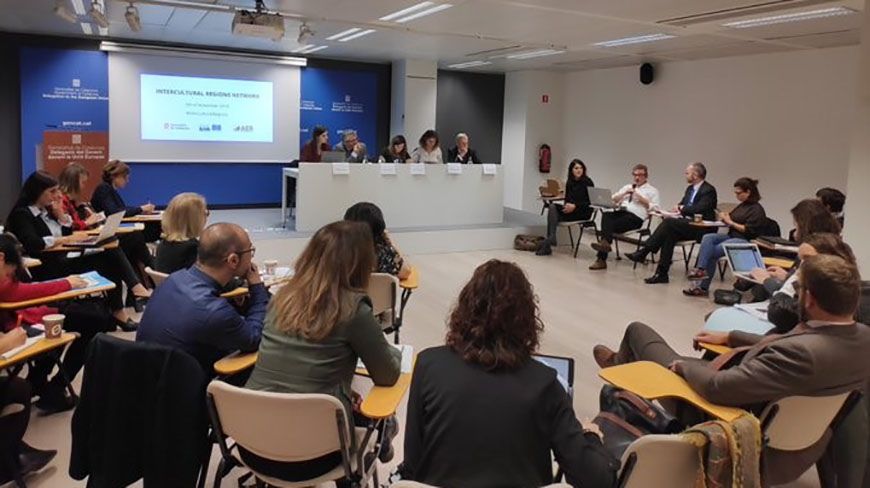The declaration of principles of the Intercultural Regions Network was presented on the morning of 5 November at the Delegation of the Government of Catalonia to the EU in Brussels. The initiative will be adopted by different European regions. It is supported by the Assembly of European Regions and benefits from the methodological support of the Council of Europe’s Intercultural cities programme.
The new network will bring together the European regions that manage coexistence according to the principles of interculturality, which are based on equal opportunities, the recognition of diversity and the promotion of interaction between people from different origins.
The secretary of Equity, Migrations and Citizenship of the Catalan Government, Mr Oriol Amorós, stated that “our proposal is to build a new network to exchange practices, to learn from each other, and to collaborate with institutions by incorporating the intercultural perspective”. During the introduction that took place at the Espai Catalunya Europa, Meritxell Serret, representative of the Government of Catalonia at the EU, stated that “we have to deal with the common challenge of building a more cohesive society, an EU more conscious of its diversity”.
The vice-president for Equity and Diversity of the Assembly of European Regions, Andrew Gibson, highlighted that “the initiative is excellent and hits the heart of the problem. At some point, the EU will understand that immigration is a major challenge unless is confronted with tools as inclusion and becomes an opportunity”.
“Cities can do quite a lot but we need to work with regions and the national level. It is a long-term work, we need strong coalitions to move at the same direction”, remarked the head of the division of Inclusion and Anti-Discrimination Programmes of the Council of Europe, Irena Guidikova, who was the founder of the Intercultural Cities programme.
After the presentation, a round table to discuss and adopt the Intercultural Regions principles document took place, as well as the discussion of the objectives, timeline and activities of the future network.




